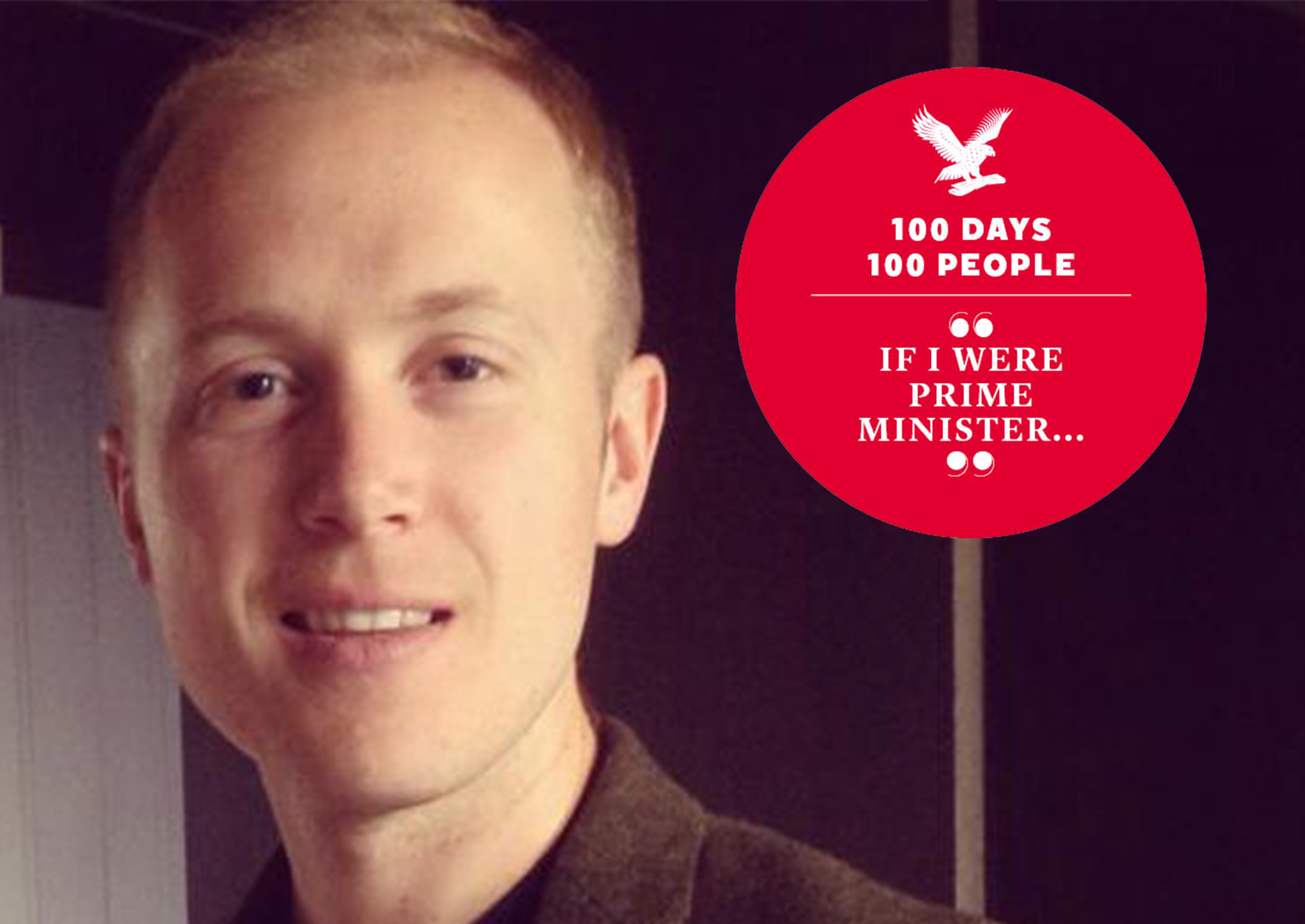If I were Prime Minister: I wouldn't let anyone leave school without meeting the minimum standards
Our series in the run-up to the General Election – 100 days, 100 contributors, but no politicians – continues with the Founder and Chief Executive of Bright Blue

I’m approaching thirty. “Tick Tock”, a younger friend keeps reminding me, helpfully. It’s far too young to be Prime Minister, of course. But there are new and serious expectations for a thirtysomething: marriage, kids, buying a house. Being a grown up, basically.
This is geeky, I know, but thirty is also a key age researchers use when examining longitudinal data to measure your social mobility; basically, to see if you’re doing better in life than your dad when he was your age. Very unlikely. Can I stay in my twenties, please?
My friends are getting twitchy about it too. All of us, no matter our age, are prone to this age consciousness; we feel the social pressure to accomplish certain life goals by a certain time. But life does not follow a linear upward trajectory. Many of us experience disruption or difficulty in our relationships, careers or finances. Life is a meandering road, not a straight one.
Similarly, children do not develop – cognitively or socially – at the same rate. Yet we maintain an education system where children progress through school on the basis of their age rather than their ability. This is madness: it means nearly a third of sixteen year olds do not get 5 A*-Cs at GCSE, the minimum academic attainment which is expected from government and, most importantly, employers. We are letting thousands of young people leave our education system without gaining the passport that is needed to access and thrive in mainstream society.
Many children move into the next stage of their schooling, to a more challenging curriculum, without mastering the basics of the prior stage. At the end of primary school, children are expected to be working to at least Level 4 or above in their Key State 2 SATs in reading, writing and mathematics. Last year, 21% of 11 year olds did not achieve this, but yet they still went to secondary school to study Key Stage 3 the next year.
If children will not or do not get the expected minimum in their tests by the end of each relevant Key Stage, they should not progress to the next Key Stage. This will mean the normalisation of mixed-aged classrooms. They will, of course, be tricky to administer, and difficult at first to gain the support of sensitive parents and children. But the existing evidence – though it needs further development - suggests mixed-age classrooms are associated with significant improvements in attainment and attitudes towards schools for some children, especially those from low socio-economic backgrounds.
This country ought to have almost every child leaving school with the minimum expected attainment at GCSE level, even if it takes a year or two years longer to achieve. This is demanding, but a profoundly positive view of human nature: that all children are capable of - and deserve – a high-quality academic education. It is why the underlying philosophy of the grammar school system, that only a proportion of students should and can take the academic route, is too unambitious for our children and teachers.
In fact, right from the start, there are children who are not yet prepared for infant school. According to the Bercow Report, roughly one in fourteen children start school with serious speech, communication and language needs. Children need strong foundations to be equipped for the long school years ahead. High-quality, pre-school education has been proven to enhance the long-term educational development of children, especially those from more deprived backgrounds.
Currently, all three and four year olds – and the most deprived two year olds – are entitled to fifteen free hours of pre-school education a week in a quality setting. This Early Years Free Entitlement has very high take-up, but low-income families and certain ethnic minority groups are less likely to take advantage of the scheme.
Really, 100 per cent of children should be accessing this Free Entitlement. Attending pre-school should be judged just the same as taking your child to school, especially as it’s just as important, if not more, for children’s development. Even if parents are, admirably, looking after children full-time at home, they should be expected to take their children to pre-school education, viewing the Free Entitlement as an education rather than childcare service. It may be necessary to make the receipt of certain benefits – such as Child Benefit – conditional upon accessing the Free Entitlement.
So if I were Prime Minister, I’d make sure all children attended pre-school education and only left the school system once they had achieved the minimum expected grades at GCSE.
Ryan Shorthouse is the Founder and Chief Executive of Bright Blue
Join our commenting forum
Join thought-provoking conversations, follow other Independent readers and see their replies
Comments